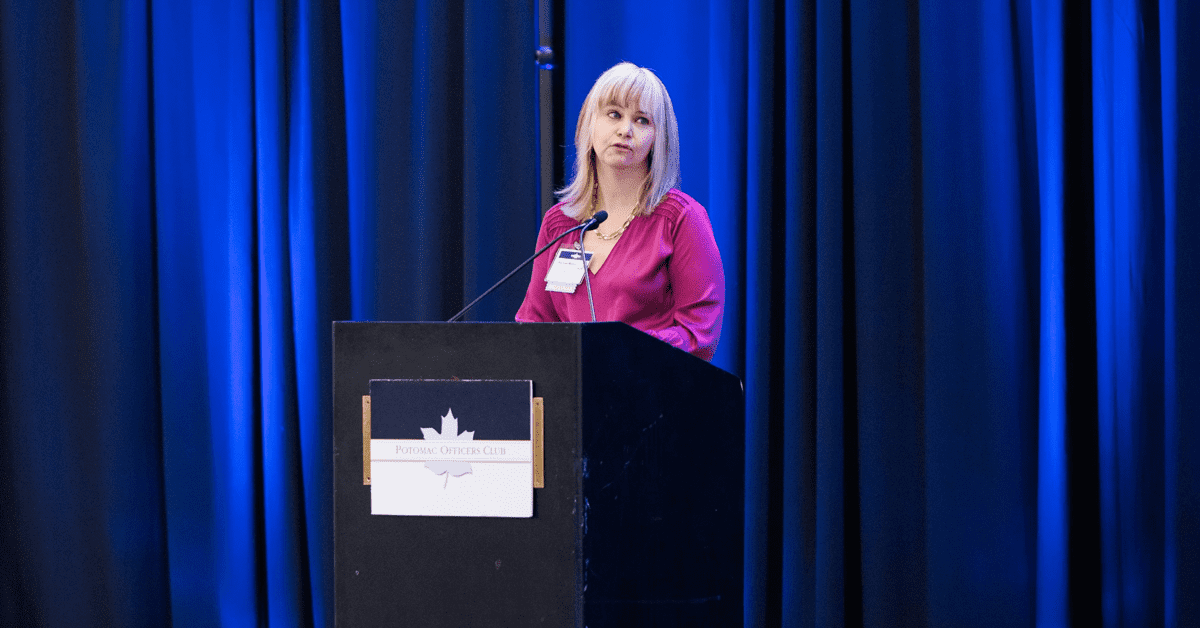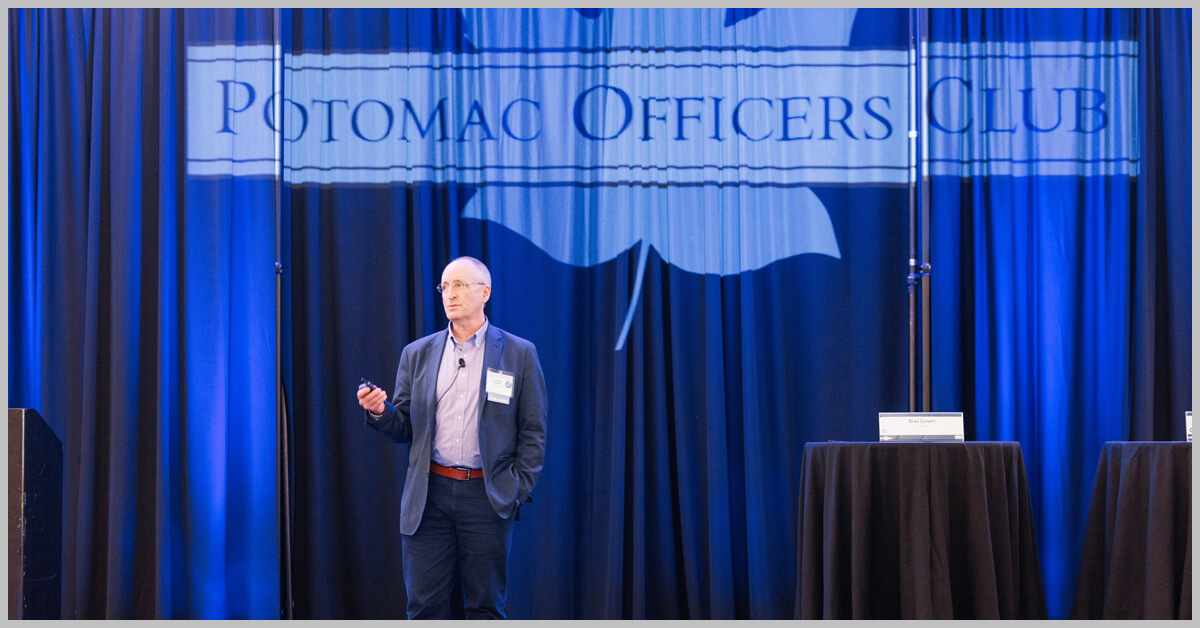Project Maven was launched in 2017 to accelerate the adoption of artificial intelligence across the U.S. military. The initiative has made tremendous strides in its efforts to explore new AI technologies, and in November, it became a program of record at the National Geospatial-Intelligence Agency.
Rachael Martin, director of NGA’s Maven Office and a 2024 Wash100 Award winner, said the program “began from a place of learning.” As her office gears up to implement the capabilities Project Maven has developed across the Department of Defense, Martin is focused on the delicate balancing act of scaling quickly while still “building AI the right way,” she said in a keynote address at the Potomac Officers Club’s 5th Annual AI Summit on Thursday.
Since its inception, Project Maven has welcomed users into the AI development process and leaned on their feedback to create its capabilities.
As the program advances, Martin is guided by a complex question: “How do you take an innovative field-to-learn, fail fast pathfinder, retain those aspects that make it successful, while also creating a stable, viable set of AI products that end users could be confident would not disappear, or even worse, leave them with a bill for sustainment?”

Maintaining a high level of user engagement is a key part of “building AI the right way” and a foundational element of all other parts of this approach. Continuing to foster a culture of collaborative innovation is a top priority for Martin, and she intends to include users in every stage of the scaling process.
“[Building AI the right way] means understanding the challenges that your end users face and designing or integrating an AI capability that will meet their mission needs,” she said.
There are several other techniques involved in this strategy. Flexibility is one element of Project Maven’s method, and a major priority for the program is making sure its offerings can be scaled “to support a wider range of users and use cases.”
When building models, the Maven Office aims to “ensure that we plan for a wide range of uses across potential entrance locations,” whether it is cloud, on-premises or at the edge.
“Supporting AI across a range of use cases means thinking ahead, not only for our own constraints and production, but those of the end users that may be inferencing this model in entirely unexpected locations,” Martin said.
Another component of this strategy is “baking in the principles of responsible AI from the ground up.”
“That means integrating software that allows us to automatically assess bias in our training data. It means providing comprehensive metadata on the output of AI systems,” she explained.
She recommends that this data include “things like which model was used” and said performance metrics should be “easy to understand.”
“Building AI the right way means building a scalable, resource-informed capability that is technically performant, secure and aligned with the tenets of responsible AI,” she said.

Check out the Potomac Officers Club’s 5th Annual CIO Summit on April 17 for a look into even more federal technology initiatives. This event will bring together key information technology leaders from both the public and private sectors to discuss current IT challenges and opportunities for the U.S. government. To learn more and register to attend the CIO Summit, click here.







